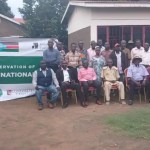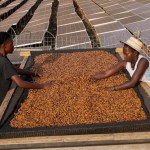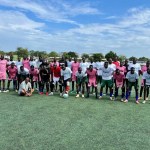(Torit) – German humanitarian organisation Welthungerhilfe (WHH) has handed over five newly built and rehabilitated nutrition and WASH (Water, Sanitation and Hygiene) facilities to local authorities in Torit County, Eastern Equatoria State.
The handover marks a major milestone in ongoing efforts to reduce severe and moderate acute malnutrition in vulnerable communities, particularly among children under five and pregnant or breastfeeding women. According to WHH, the facilities are now fully operational and integrated into the local health system.
Speaking during the handover ceremony, WHH Country Director Ania Okinczyc said the initiative is about more than just infrastructure. “This is an investment in lives, dignity, and resilience,” she stated. “The facilities have been designed to be both functional and sustainable within the local context, so that communities can take ownership and continue the work long after we leave.”
The new centres are located across three payams—Imurok, Kudo, and Lowoi—chosen strategically to ensure that communities in remote areas can access services without long travel. These facilities are expected to serve over 20,000 people directly with services including nutrition screening, treatment of malnutrition, health education, and follow-up support for children and mothers.
The centres are fully equipped with medical tools such as beds, drip stands, stabilisation centres for severely malnourished children, and child-friendly spaces. The Kudo Primary Health Care Centre (PHCC) now has a dedicated nutrition store, while Lofiri PHCU has a new waiting area and improved washroom blocks with latrines.
Mama Rehema, a nutrition officer at Torit State Hospital, expressed her appreciation.
“Before, we didn’t have enough beds. Most were worn out or broken. Now we receive six to seven children daily, and with the weather, the new bedding and blankets are essential,” she said.
The acting medical director of Torit County, Oboy Joseph Odong, also praised WHH’s contribution and called for more collaboration. “The congestion in our centres has been a challenge. What WHH has done is a legacy. We hope this kind of cooperation continues and reaches even the grassroots,” he said.
Dr Amin Gordiano, Eastern Equatoria State’s Director for Primary Health Care Centres, also welcomed the handover and encouraged all NGOs working in health to keep engaging with local authorities for transparency and accountability.
The facilities, now under local management, are expected to boost health outcomes in Torit and serve as a model for other counties in need of similar investment and partnerships.


















































